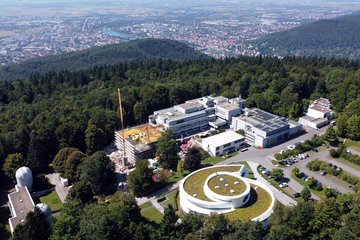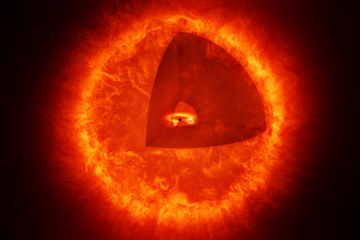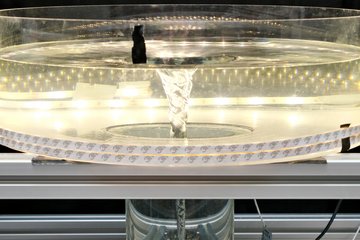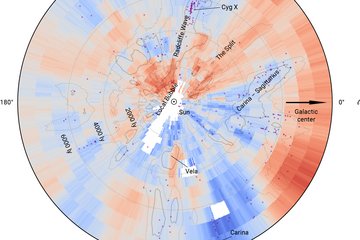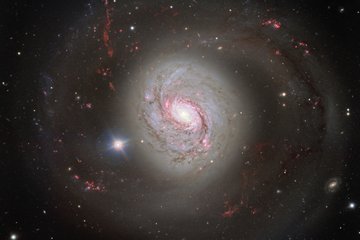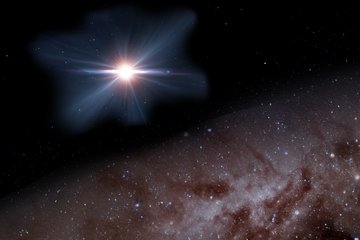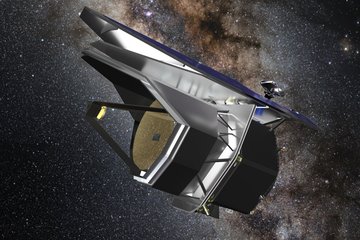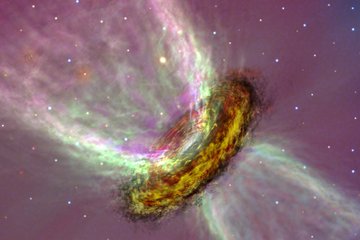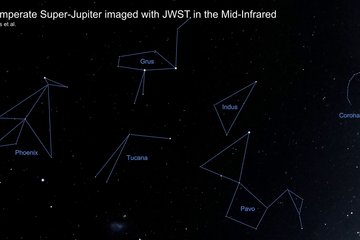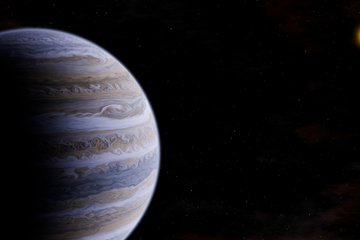Trifon Trifonov awarded by the Göttingen Academy of Sciences

Trifon Trifonov, who conducts research in the department "Planet and Star Formation" headed by Thomas Henning, receives the Academy Award for his outstanding work in the field of research on extrasolar planets (exoplanets).
In contrast to the planets of our solar system, exoplanets do not orbit our sun, but other, distant stars. Since the first exoplanet was discovered about a quarter of a century ago, several thousand more objects of this kind with very different properties have been found. Among them are even candidates for very Earth-like objects.
What they all have in common is that they are very difficult to detect. Due to their large distances from earth, exoplanets, which like our planets only reflect the light of their central star, appear extremely faint. But the bigger problem is that these planets appear to us only at a very small angular distance from their star and are therefore strongly outshined. Only under favorable conditions and with special cameras that provide high resolution- and high-contrast-imaging a few percent of the exoplanets can be seen directly. The discovery of the vast majority of exoplanets is therefore due to indirect methods. For example, exoplanets reveal themselves when, in our view, they pass in front of their star (Transit) and attenuate its light. Or they cause periodic tumbling of the central star, since they also have a mass and thus systematically influence the star's motion due to gravity.
On the observation side, Trifon Trifonov is concerned with detecting multi-planetary systems through these indirect methods, namely the Dopplereffect to measure the motions and the transit photometry techniques. His scientific focus is mainly on the orbital and physical characterization of exoplanets using numerical techniques such as dynamical modeling of Doppler and transit data, and long-term dynamical stability of multi-planets using direct N-body simulations. The goal is to estimate the parameters of planetary orbits more accurately and thus to better understand the conditions for the formation and evolution of the planets.
The prizewinner studied in Sofia (Bulgaria) and Heidelberg, where he also received his doctorate in 2014. He then worked as a postdoc in the Department of Earth Sciences at the University of Hong Kong before joining MPIA in 2016.
The award ceremony was originally scheduled to take place this month in the auditorium of the Georg-August University of Göttingen. Due to the Corona Pandemic, this event has now unfortunately had to be postponed until 2021.
The Göttingen Academy of Sciences and Humanities was founded in 1751 and is a scholarly society rich in tradition and a non-university research institution. It unites about 400 outstanding scientists and scholars across disciplinary and national borders and supervises many projects of international importance. With the awarding of the prize, the Academy wants to motivate young outstanding scientists and scholars to continue their successful work.
KJ/TT/Th.H.

